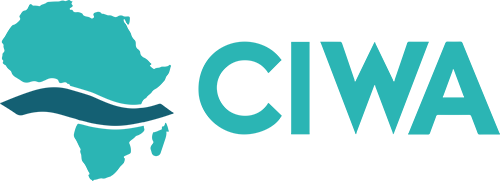
Welcome to our latest edition of the CIWA Bulletin!
2025 was a year of major milestones for CIWA—and today we’re excited to launch our new CIWA Annual Report, offering a deep dive into the progress and challenges shaping cooperative water management in Africa.
Most of Africa’s water—surface and groundwater—is shared. To achieve the continent’s ambitions for water, energy, and food security, and to advance economic development, including the jobs agenda, stronger cooperation is essential. With solid backing from development partners, CIWA continues to deliver strong results. But demand is rising fast—and more support is needed.
Take a moment to browse through the full CIWA newsletter, where we highlight insights, stories, and results from across Africa.
Wishing you all joyful end-of-year festivities—we’re already looking forward to what next year will bring for international water management.
Anders Jagerskog and Ai-Ju Huang, CIWA Program Managers
ANNUAL REPORT 2025: NOW AVAILABLE
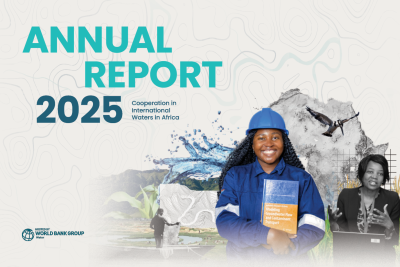
CIWA’s approach combines recipient-executed grants with technical assistance and convening, enabling outcomes that no country can achieve alone. By strengthening institutions, data systems, and cooperative investments, CIWA advances climate resilience, water security, and livelihoods. Its support for Young Professionals and internship programs is building the next generation of water specialists, preparing them for engagement in transboundary water management. Dive into our Annual Report 2025.
What’s making a splash
Transform water challenges into careers: how a NELSAP-CU campaign is inspiring Rwandan girls
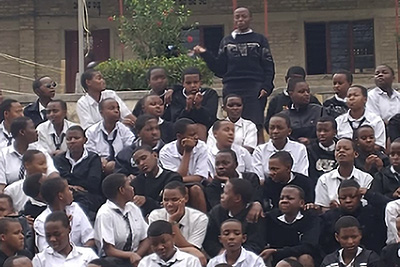
NELSAP-CU launched an outreach campaign in Rwanda to inspire girls to pursue water engineering careers. Through school visits and interactive sessions, the initiative encouraged students to explore technical fields and helped expand aspirations in communities with limited exposure to engineering opportunities.
Building Climate Resilience in the Nile Basin: NBI’s Contribution Ahead of COP30
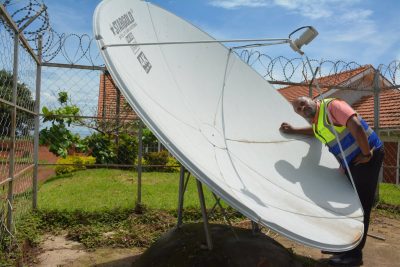
At COP30, the Nile Basin showed how regional cooperation strengthens climate resilience. Spanning 11 countries and 300 million people, the basin faces worsening droughts and floods. Collaborative planning and shared data are helping countries manage climate risks and protect vital water resources.
Harvesting Hope: How Communities Are Reviving the Lake Chad region

Achta’s experience reflects the challenges of the Lake Chad Basin, where conflict and climate pressures have dramatically altered livelihoods. With the lake shrinking nearly 90 percent since the 1970s, communities are adapting through local initiatives that promote resilience, stability, and new economic opportunities.
A Regional Model for Success: World Bank Praises NBI’s Nile Cooperation and Climate Resilience Project
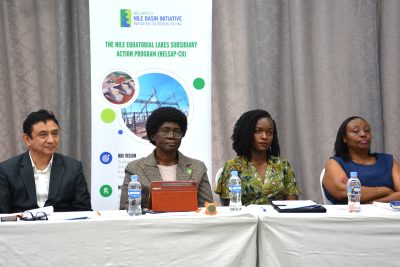
The Nile Basin Initiative’s NCCR project, funded by CIWA, is nearing completion after significantly strengthening regional capacity for climate action and water cooperation. Improved data systems, tools, and collaboration now support countries in planning resilient water investments and advancing shared development goals.
Reflections on the SADC-GMI Winter School: Lessons for a Sustainable Groundwater Future
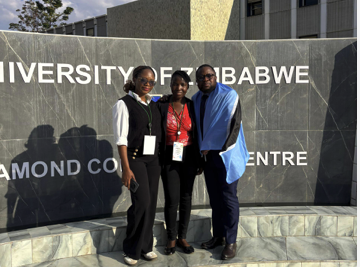
Gloria Musopole, who is participating in a Young Professionals program, joined a two-week knowledge exchange with experts and peers from across the SADC region. The program mixed technical training, case studies, and discussions, offering an inspiring space to build skills and deepen commitment to water security and climate resilience.
Strengthening Water Resilience in Ethiopia’s Rural Communities
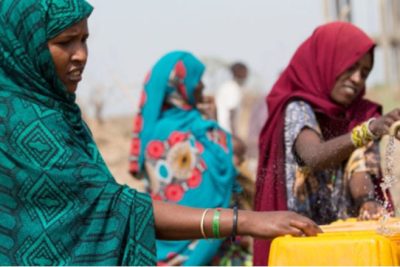
Ethiopia’s Groundwater for Resilience Project focuses on high-quality, climate-responsive design to meet rising water demand. By improving assessments, engineering standards, and monitoring, the project strengthens long-term reliability of groundwater systems and supports sustainable water access for vulnerable communities.
What's new in transboundary waters and beyond
Nile Basin Initiative Newsletter
The NBI’s July–September 2025 edition of Nile News showcases the latest strides in regional water cooperation. This issue highlights critical milestones — from enhanced water quality monitoring and the groundbreaking Groundwater Pilot Project to an in-depth interview with staff on NBI’s long-term sustainability strategies. Each article underscores how our shared vision continues to translate into concrete benefits for all Nile Basin Member States, reinforcing our commitment to resilient and equitable water management.
The 32nd edition of Africa’s Pulse — Pathways to Job Creation in Africa — provides an in-depth analysis of Sub-Saharan Africa’s economic outlook and urgent jobs challenge. Also available, an episode of the People First Podcast with Andrew Dabalen, Chief Economist for the World Bank Africa region, where he breaks down the key findings of the report, highlights job trends across the continent and examines opportunities to create sustainable employment for Africa’s growing working-age population.
7th SADC Groundwater Conference: Key Takeaways
The conference successfully concluded its insightful three-day program on November 2025. Held under the overarching theme, "Investing in Groundwater for Climate Action," the conference served as a critical platform to explore the pivotal role of groundwater as a catalyst for mitigating the impacts of climate change and fostering a climate-resilient SADC region.
Africa Adopts the Water Vision 2063 and Policy
The African Ministers’ Council on Water has adopted the Africa Water Vision 2063 and Policy, positioning water as a strategic driver of prosperity, peace, and climate resilience under Agenda 2063. Ministers approved measures to fast-track implementation and will seek African Union endorsement in 2026 to accelerate adoption across the continent.
How Smarter Systems are Changing Lives
The World Bank -with support from GWSP- is helping governments reimagine what sustainable, inclusive, and community-driven service delivery can look like. Immersive stories: from West Africa and South Asia, on two bold initiatives show how with the right mix of strategy, investment, innovation and commitment, water can be a catalyst for lasting change.
Defying Drought across the Sahel
In October 2025, the World Bank Group, together with the Government of Burkina Faso and the International Institute for Water and Environmental Engineering (2iE), launched the Defying Drought Impact Program to help countries scale up drought-resilience measures.
Spotlight | Data to Decisions: Building Climate-Resilient Irrigation in the Lake Chad Basin
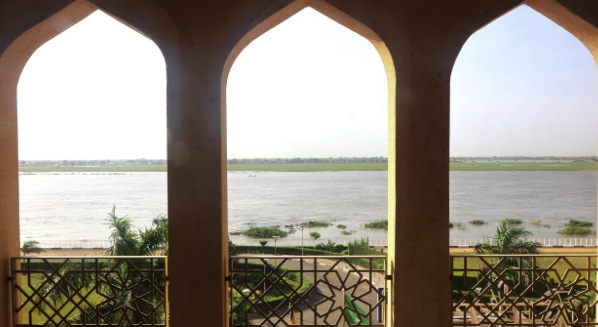
Chari River near N’Djamena at near highest annual water level (Nov 2025) @Sander Zwart/ World Bank
Expanding sustainable irrigation is essential to securing water, food, and livelihoods for more than 50 million people in the Lake Chad Basin. A recent workshop in Chad brought together experts from across the region and the Lake Chad Basin Commission to explore climate-resilient irrigation opportunities, share insights from a World Bank–IWMI study, and strengthen capacity for transboundary water management. The study highlights that while climate change may increase water availability, effective planning is needed to harness this opportunity sustainably, especially in a region where Lake Chad has already lost over 90% of its surface area since the 1960s.
The analysis identifies two key irrigation development pathways—farmer-led irrigation development and the rehabilitation and expansion of existing schemes—both requiring careful alignment with local socio-economic, environmental, and security conditions. With rainfall expected to rise and flood risks growing, coordinated basin-wide flood management will be critical. This collaborative effort marks a significant step toward improving livelihoods, protecting ecosystems, and strengthening resilience to fragility, conflict, and violence, supported by CIWA, the QII Trust Fund, and regional partners.
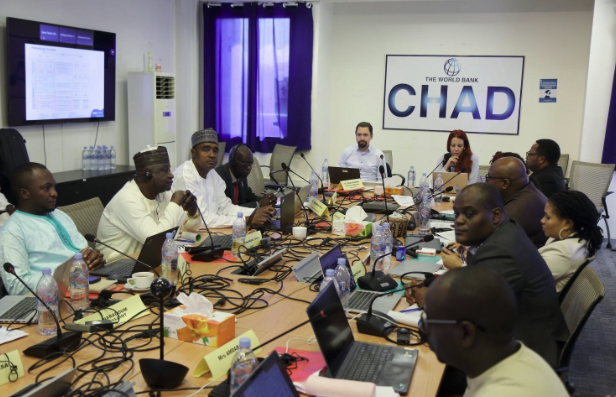
Hydrological Modeling, Water Accounting and Irrigation Pathways for the Lake Chad Basin workshop in Chad. @Sander Zwart/ World Bank
Save the date for these upcoming events
ON THE WAY: NILE DAY 2026
The Nile Basin Initiative (NBI) will celebrate Nile Day 2026 on February 22, 2026, commemorating the establishment of the NBI in 1999. This year’s theme, “Voices of the Nile: Community, Youth, and Women engagement in water governance,” emphasizes the critical role of inclusive participation in managing the basin’s shared water resources and provides a platform for stakeholders to exchange ideas, reflect on the benefits and challenges of Nile cooperation, and strengthen basin-wide collaboration for sustainable water management. More info here.
WORLD WATER DAY 2026 FOR GENDER EQUALITY
The celebration of World Water Day 2026 is a unique chance to highlight how important water is to the Sustainable Development Goals (SDGs) and how these goals are bound together. Next year, World Water Day 2026 will focus on water’s role in gender equality. World Water Day became a UN observance day in 1993 and is celebrated annually on March 22. It aims to inspire action to tackle the water and sanitation crisis and raise awareness of the 2.2 billion people living without access to safe water. More info here.
CIWA’s social media engagement
ABOUT CIWA
The World Bank's Cooperation in International Waters in Africa program—CIWA, a multi-donor trust fund, continues to support riparian governments in West, East, Central, and Southern Africa and their path toward more sustainable, data-driven, community-focused, and collaborative management of transboundary waters. Learn more about our program activities on our English and French Websites. And do follow us on LinkedIn and X @CIWAProgram
A special thank you to our editorial team, partners, reviewers and authors. Photo Credits: Shutterstock, Unsplash, Flickr and the World Bank.
